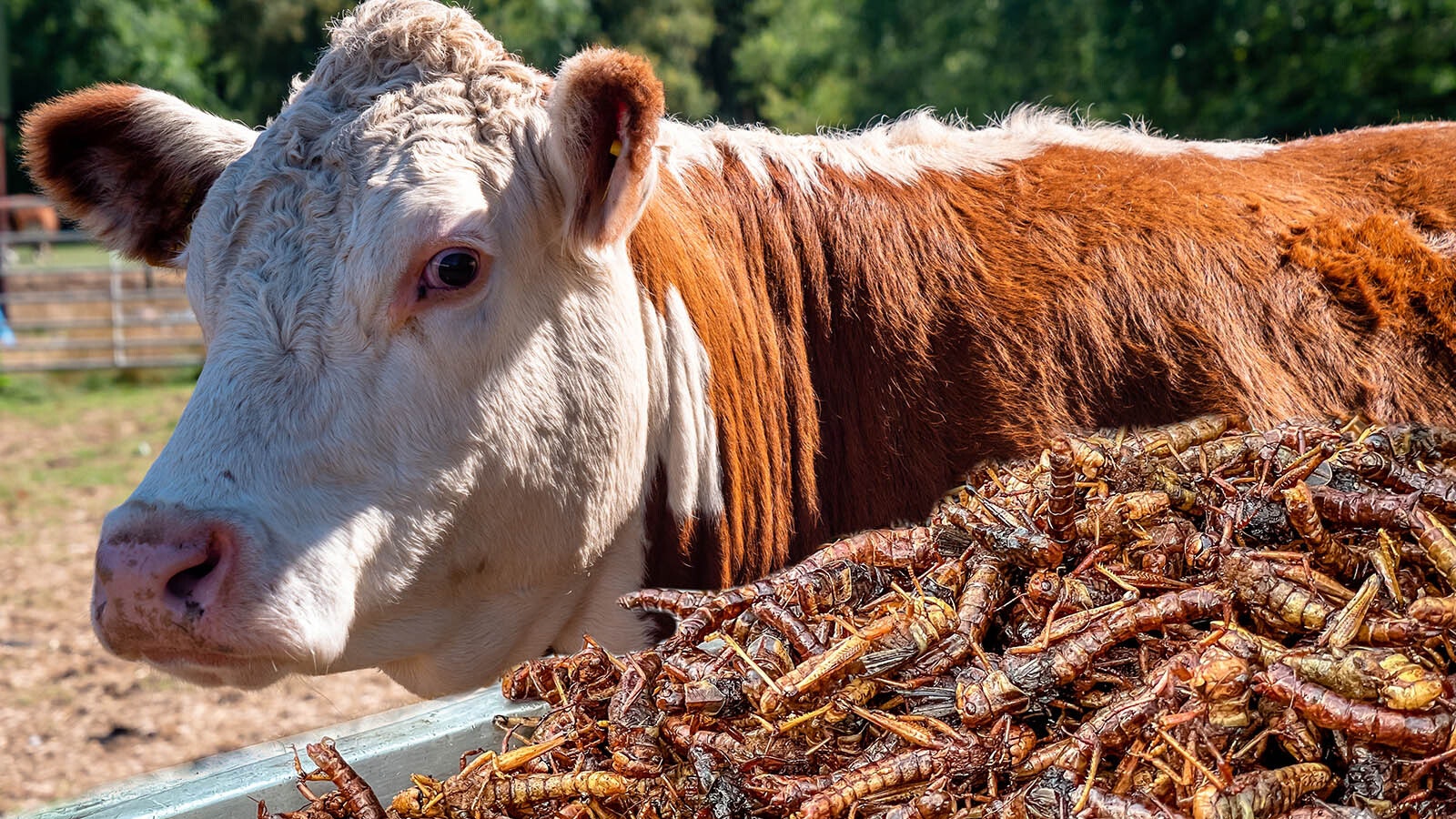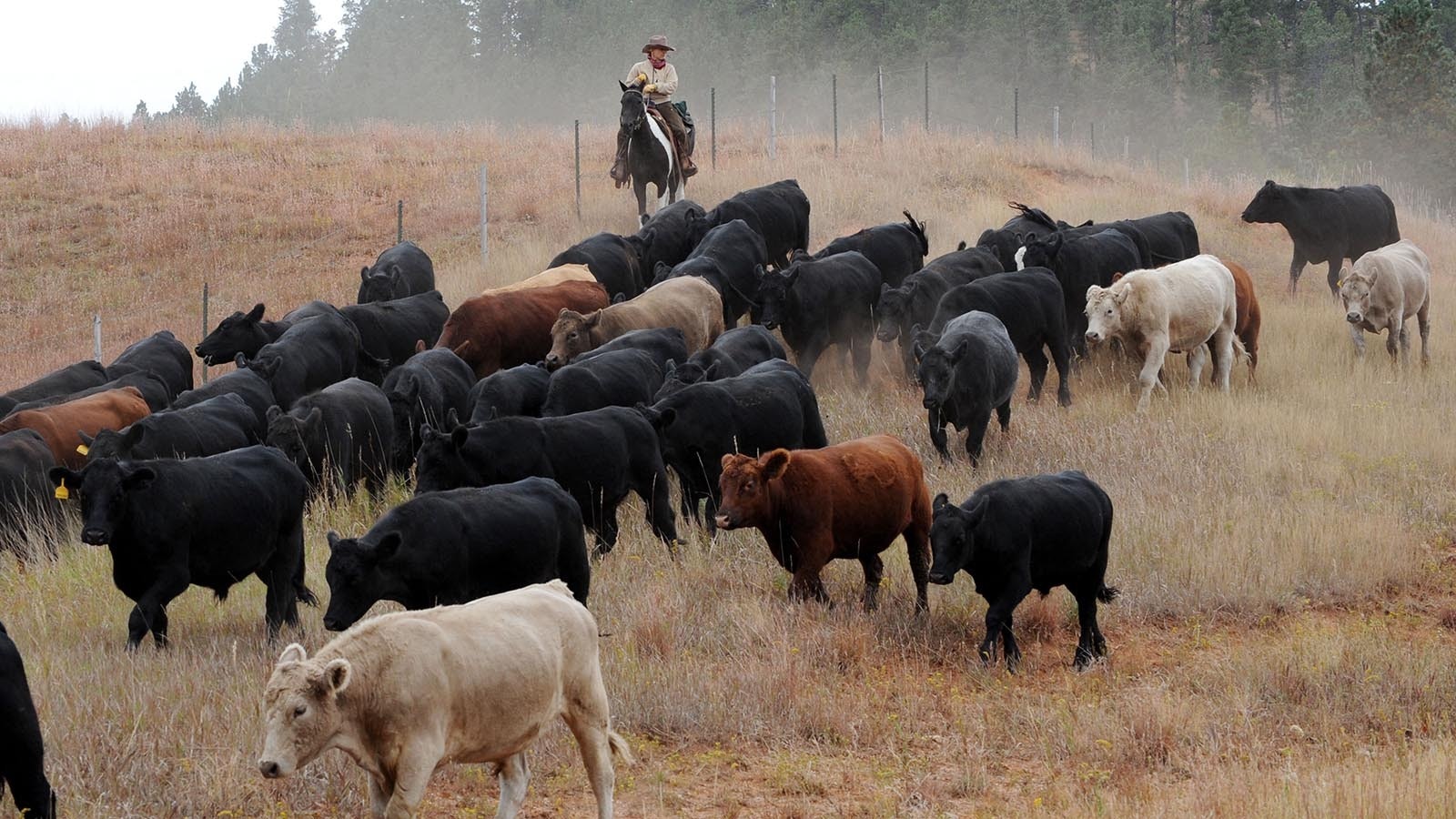A Utah middle school teacher wanted to drive home a message that eating meat is bad for the climate.
So, she had her students eat bugs, while refusing to let them object to the idea that insect consumption is a good idea.
Fox News reported that students in a sixth-grade class at a middle school in Utah’s Nebo School District were given samples of insects that were “safe for consumption” as part of a lesson on reducing carbon emissions by switching from red meat to insects.
The students were then instructed to write an argumentative essay in support of bug-eating as a means to address climate change. They were not allowed to disagree or take an opposing position in their essays as the teacher, Kim Cutler, reportedly told them there was “only one right answer.”
Circle Of Life
Even though livestock production accounts for just 2.5% of all greenhouse gas emissions in the United States, according to the EPA, climate activists have put cows in the crosshairs.
The global anti-cow crusade is leading to seaweed supplements to reduce the methane from cow burps and diapers for cattle.
Why the obsession with cows?
Brett Moline, director of public and governmental affairs for the Wyoming Farm Bureau, told Cowboy State Daily it might have something to do with the fact that a lot of cattle are raised in red states.
“It’s more of a political motivation,” Moline said. “It’s getting to be a crazier world.”
The campaign to end the cattle is ignoring the environmental benefits of livestock grazing, Moline said.
Cattle are grazed on land that wouldn’t be used for other purposes like farming. And when grazing is done properly, cow manure fertilizes the soil. The cow hooves also help get the nutrients below the surface and loosen the soil. And that encourages plant growth that helps take carbon dioxide out of the air and puts it into the ground through deeper root growth.
Then that plant growth provides food for the cows, which provides an ideal source of protein for people, Moline explained.
“It’s the proverbial circle of life,” he said.
Quarter Beetle With Cheese
James Taylor, president of the Heartland Institute, told Cowboy State Daily that the anti-cow campaign is just the latest cause de jure for climate activists. And the Utah school assignment is a sign of how intensely the message is being pushed.
Everything from soccer moms driving SUVs to air travel has been targeted as big problems that are causing global warming, Taylor said.
“My goodness, how many big problems, big reasons for climate change are there? And if there are so many, how is eating bugs going to make a difference?” Taylor said.
Taylor said a classroom assignment where kids eat bugs may be a cute, fun assignment to grab the kids’ attention, but that’s followed up with the message that not eating red meat is the only right answer. It’s also meant to “indoctrinate” people from a young age to a world in which everything is a threat to climate.
“Maybe some entrepreneur should open up a chain of cockroach restaurants or an Insect King restaurant to see how that goes,” Taylor joked.
Taylor said that getting people to substitute beef for insects is a “form of dietary totalitarianism that’s creeping up on us.”
Dietary Grooming
Taylor said vegetarian climate concerns began in 2006 when the United Nations published “Livestock’s Long Shadow,” a 390-page study detailing every possible environmental impact from livestock production that researchers could find.
The report was highly controversial then, but over time the belief that cows are a big problem for the environment has entered mainstream climate activism.
Taylor thinks that eventually, this activist concern will translate into federal policies that are going to close down ranches in the same way they’ve closed down coal-fired power plants.
“They’re trying to push insects as an alternative to me, so that they can get closer to the point where they can ban livestock raising,” Taylor said.
Neutral Classroom
According to Fox News, one of the students in the Utah class where the bug-eating assignment was given asked if she could state the opinion that people shouldn’t be eating bugs.
According to a video the student took of the exchange with her teacher, Kim Cutler, she was told that the assignment was about finding facts to support the position that eating bugs is good.
The teacher explained that all the evidence supports insect consumption because it’s good for the environment.
After the student’s mother complained about the assignment, the teacher apologized for not letting students write an opposing perspective.
Taylor said this kind of biased teaching about climate change, where it’s presented as undeniably leading to catastrophe, has become pervasive in the school system.
The Heartland Institute produced a textbook this year to give teachers materials that present science-based perspectives on climate change that don’t suggest it’s such a threat that the students should eat bugs to avoid it.
The book is available free online, and Taylor said teachers can get hard copies by contacting the Heartland Institute.





